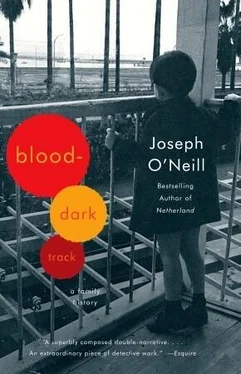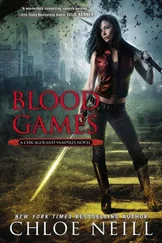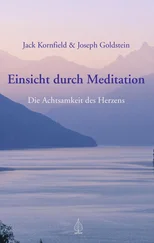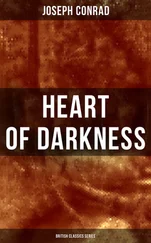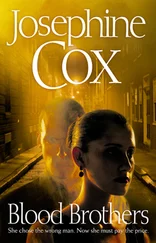
My grandfather (right), walking with a brother and nephew, in the late ’forties
Jim was born on 16 October 1909, ‘in Libra, the sign of balance,’ my aunt Ann said with a little laugh, because in fact her father was an agitated, moody man prone to explosions of temper. He was rarely at ease. Sitting about, relaxing, was out of the question: there was always a chore to finish, always something to be done. Punctual, he was intolerant of tardiness in others: if you were late for an appointment, he wouldn’t wait for you. He followed a strict morning routine: get up, turn the potatoes, eat breakfast, get to work early. When he returned home in the evening he went straight to the bathroom, washed, changed, and then came down for his dinner. He never ate in his work clothes and on Sundays he wore a three-piece suit and a hat. He sometimes smoked a pipe. He took great care of his appearance: he was a very handsome man with a fine physique — slim hips, broad shoulders — and not without vanity. He liked his children to look the part, too, insisting that they were always dressed well: he would tell Grandma (who made pretty skirts that the girls loved to wear) that they couldn’t afford to buy cheap clothes. He changed the soles of the children’s shoes himself: he’d buy the leather from O’Callaghan’s, cut it rough, let it soak overnight, and stitch it on the next day surrounded by the aromas of hemp and wax. Strips of bicycle tyres would be glued on to the soles for extra protection. Jim could fix just about anything, and his skills extended to woodwork and making furniture: my grandmother’s oak and glass china cabinet, still in use, was his handiwork. He was a disciplinarian, stern and domineering with his family, which (in Jim Junior’s phrase) he ran like an army. He was very authoritarian: his children said that fumes would come out of his ears if you tried to discuss something with him. ‘Don’t answer back!’ he’d snap, even though they might not be contradicting him. His daughters, growing up as teenagers in the ’sixties, sometimes felt he was anti-everything unless it was Irish. He’d yell if he caught them listening to Radio Luxembourg. If he heard a band playing It’s a Long Way to Tipperary he’d aggressively go up and tell it to stop, intentionally causing a rumpus. He was a hard case.
That was the word that everybody used in connection with Jim O’Neill: hard . It applied to practically everything about him: his work, his times, his life, his luck.
My elder sister Ann remembered a soft moment: when her grandfather devoted an entire Christmas day to teaching her how to ride a bicycle; and my younger brother David remembered that he made him a catapult. ‘Those things would make sense to him,’ my father said. ‘He was physical man. He believed in physical things.’
He believed, for example, in using physical force on his sons. If, driving his car, you braked going into a curve, he’d whack your ear from the passenger seat. ‘Whack you? He’d murder you,’ was my uncle Terry’s laughing refinement. Terry recalled an occasion when my father was behind the wheel and exclaimed, ‘Look at the meadows!’ My grandfather swung and connected with the back of his hand. ‘Keep your eyes on the road,’ he barked. Kevin did not get on with his father. Terry told me with a smile, ‘Your dad was kind of lackadaisical. We all seemed to have specific jobs, specific roles — I’d be in charge of this, Jim might be in charge of the other — but I don’t remember how Kevin fitted into that scheme.’ Kevin wouldn’t kow-tow to his father (an aunt said) and this independence of spirit was regarded as an infuriating form of insubordination: Jim, with his limited education, was not one to view argument as a vehicle of enlightenment. Even allowing for this, my father still couldn’t exactly fathom what my grandfather’s problem was. ‘Joe, he was so irrational; I couldn’t rationalize the violence at all.’ My father told me this one morning in 1996. We were driving to Oxford, where later that day the university would confer a degree on my younger sister, Elizabeth. He spoke in a straightforward, open way, even though what he was saying was difficult and cathartic. ‘I used to dread him coming home at night. I was petrified he’d find some reason to punch or kick me. Your mother said to me, Maybe you had misconceptions. Well, those right hooks and left crochets were not misconceptions.’ It was raining, and my father, a tassel of thick silver hair falling over his brow, leaned forward to wipe mist off the windscreen to help my driving vision. He sat back in his seat and added, ‘We didn’t really see eye to eye on many things. Take the poaching. It makes a great story now — how we went “mushroom picking” along the river when the net was to be collected, how, with the Hillman stinking of fish, my father gave a lift to Inishannon to a guard who said he going to raise the alarm about poachers — but I saw no justification for it. I thought it was wrong. When the bailiffs and the police came to the house that time they found the scales in the net — and by the way, I was blamed for that, I got a real walloping — I should have slammed the door in their faces; but I didn’t. I had this sense of respect for authority, a sensitivity about wrongdoing. That was the thing about my dad,’ my father said. ‘I felt he was always trying to get me to do things I thought were wrong .’
Driving, I said nothing. ‘As I started to succeed at hurling, things improved,’ my father continued. ‘When I reached around seventeen or eighteen years of age, his invincibility crumbled. I lost my fear of him. Years later, I came back to Ireland as a married man and I took him out for a drink. “There are some things I’d like to clear up,” I said, and I asked him why he’d behaved in the way he had. He said things like, “You’ve got to be cruel to be kind.” I said to him, “Everything you did in your life, I swear I’ll do the opposite.” And that’s how it has turned out. His intolerance, his failure to explain anything — they’ve acted as spurs for me.’ We sat for a little while in silence, travelling in rain. Then my father said — and here his ambivalence about Jim, whose name he gave to my younger brother, surfaced — ‘You know, having said all that, if he walked through the door today I’d be very comfortable with him. I’d have no problem having a beer and a chat. And if he hadn’t been my father, I’m sure I’d have liked and respected him as a friend. There was a lot about him that was admirable.’ My father examined his hands. ‘There came a point when I started going back to him; when I realized that he needed my help. Keep in mind that opportunities were very limited, Joe. Ireland in those days was a different world, you wouldn’t believe how narrow and bleak things were. Yet, in spite of it all, he managed to bring up a family of ten kids. It wasn’t perfect — we’d have to borrow schoolbooks and look over classmates’ shoulders — but the way he provided for us was a great achievement. He was a relentless worker,’ my father said. ‘He worked for us night and day.’
Jim O’Neill’s children were unanimous about this: their father was an unstinting provider. ‘He didn’t deny us one brown ha’penny,’ Jim Junior said. But the responsibility of doing well by his family — the responsibility, as uncle Jim put it, of having to go to every extreme to earn a shilling — incarcerated my grandfather: he never really felt free to rest. Aunt Marian said, ‘He looked on life as a chore; I don’t know if he ever really enjoyed himself.’ Even whist drives had to be taken very seriously as earning opportunities. A good player, Jim would often win a Christmas turkey and sometimes pick up as much as £10. But more subtly dispiriting than his economic entrapment was the question of his social status. It gnawed at Jim O’Neill that he did not own his home — he, a farmer’s son. He felt, in his heart, that it was beneath him to live in a corporation house, amongst people who lived in corporation housing. He was a territorial man. Tradesmen — the breadman, the milkman — would not be allowed past the threshold: ‘These people’s place is at the door,’ he would say. When a neighbour, Mrs O’Sullivan, put up clothes to dry on the rail of the fence that divided her front garden from that of the O’Neills, my grandfather stormed over, knocked at her door and said in his abrupt way, ‘Mrs O’Sullivan, I want you to remove those clothes off the railing.’ ‘Why?’ ‘They’re unsightly.’ ‘The railing is as much mine as it is yours,’ Mrs O’Sullivan pointed out. ‘Well,’ my grandfather said, flushing, ‘would you please hang your clothes on your side of the railing, then.’
Читать дальше
Конец ознакомительного отрывка
Купить книгу
